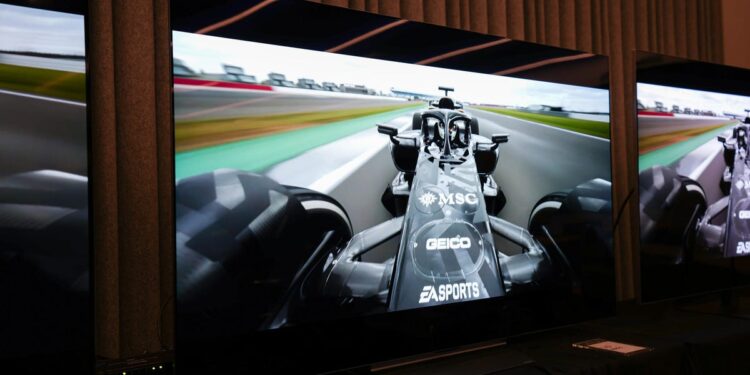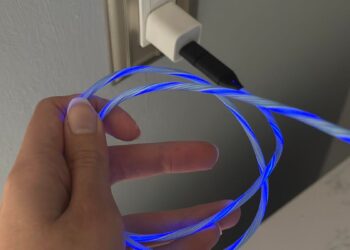
For many individuals, movement smoothing on TVs is simply applicable for gaming and watching reside sports activities; fanatics usually want turning off the function to observe the rest as a result of it could possibly detract from the filmmaker’s authentic intent, making on-screen photographs appear synthetic or hyper-realistic. That is what’s known as the “cleaning soap opera impact.”
Additionally: How to turn off ACR on your TV (and why you shouldn’t wait to do it)
It is a completely descriptive metaphor that most likely requires no clarification. You’ll be able to see all of it too nicely: the cinematic movie mustn’t seem like a daytime cleaning soap; you should not really feel such as you’re on the set with the actors. However it’s interesting to really feel such as you’re within the stadium watching your workforce with 1000’s of followers. The cleaning soap opera impact is smart for reside sporting occasion broadcasts.
The way to flip off movement smoothing (and why you need to)
One other identify for movement smoothing is “movement interpolation,” and it could possibly go by many names relying on a TV’s producer. Beneath is a fast information indicating what to search for in your TV’s menu and tips on how to flip off movement smoothing after you have had your fill of March Insanity.
Additionally: 5 easy ways to instantly improve your soundbar’s audio (without spending a dime)
On most good TVs, you’ll be able to verify the Image settings for any function that features the phrase “movement.” As soon as you discover it, here is tips on how to disable movement interpolation on numerous fashions.
Samsung TV
Movement smoothing on Samsung TVs is named “Auto Movement Plus.” As with virtually each model, begin by urgent the gear button in your distant. Choose All Settings, then go to Image > Extra Image Settings > Image Readability Settings > Auto Movement Plus.
LG TV
On LG TVs, the function is named “TruMotion.” Press the gear button in your distant, then search for the icon with three dots close to the underside of the checklist (All Settings). Then choose Image Mode Settings > Image Choices > TruMotion.
Amazon Hearth TV (Amazon, Toshiba)
On most Amazon TVs, it is known as “Motion Smoothing.” Press the gear button in your distant, then comply with this path: Show & Sounds > Superior Settings > Motion Smoothing.
Google TV (Sony, TCL, Hisense)
Movement smoothing on Google TV panels can differ somewhat amongst fashions, however typically, you may begin with the distant’s gear button, and from Settings, go to Show & Sound > Image > Superior Settings. Underneath that checklist, the function is labeled as the next for every model:
- For a Sony TV, it is known as Motionflow.
- For a TCL, search for Motion Smoothing.
- On a Hisense TV, two options have an effect on interpolation: Movement Enhancement and Movement Clearness. They’re two completely different options that do barely various things; make sure you disable each if you need movement smoothing utterly turned off.
Additionally: I changed 6 settings on my Samsung TV to instantly improve the performance
Vizio TV
The movement smoothing function on a Vizio TV is known as “Clear Motion.” After pulling up Settings with the gear button, discover Image > Superior Image > Clear Motion.
Roku TV (Aspect, Hisense, RCA, Sharp, TCL)
Roku TVs are a bit completely different. First, you may must open an enter or app, then press the asterisk (*) button in your Roku distant. Choose Image Settings, then search for movement smoothing, whose identify may differ. (For instance, as with the Google TV OS, for a Roku TCL, it is known as Motion Smoothing.) For those who do not see any motion-related options instantly below Image Settings, then scroll all the way down to Superior or Knowledgeable Image Settings to search for movement smoothing choices on that menu.
The one purpose to maintain movement smoothing turned on
To be clear, there’s a actual purpose to maintain movement smoothing turned on, and that is to enhance the looks of fast-moving photographs, reminiscent of panning throughout a basketball court docket throughout a fastbreak or seeing each tracer bullet fly previous your HUD in Name of Obligation. By including further frames to the video, movement smoothing reduces blur and creates a sharper, clearer picture, like throughout fast digital camera actions or fast-moving motion scenes.
Additionally: 5 Chromecast features you’re not using enough on your TV (including a smart home buff)
Technically, it creates constant picture transitions by injecting interpolated frames between present ones, successfully growing body charges from the usual 24 frames per second to 60 and even 120 FPS. For each different TV use case, you are higher off with out the function.



















